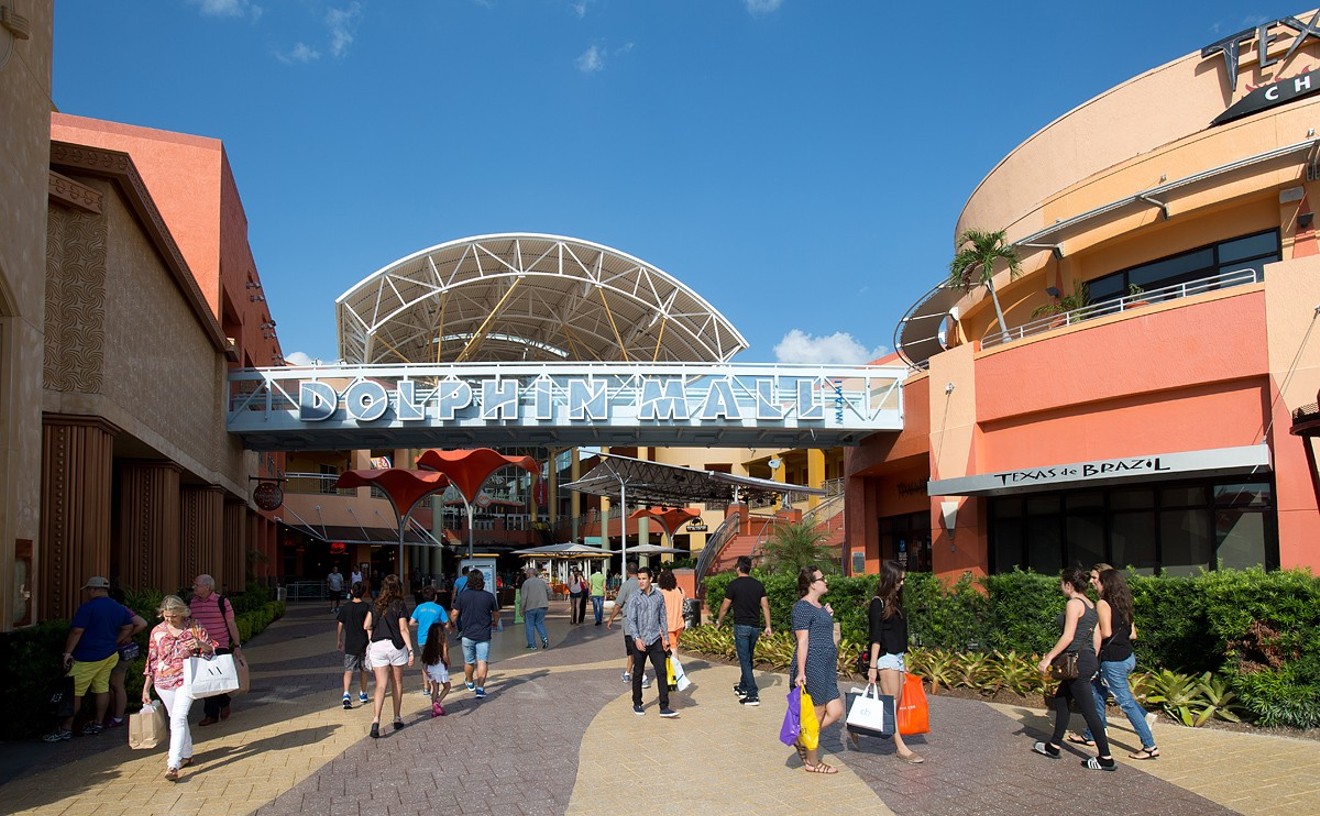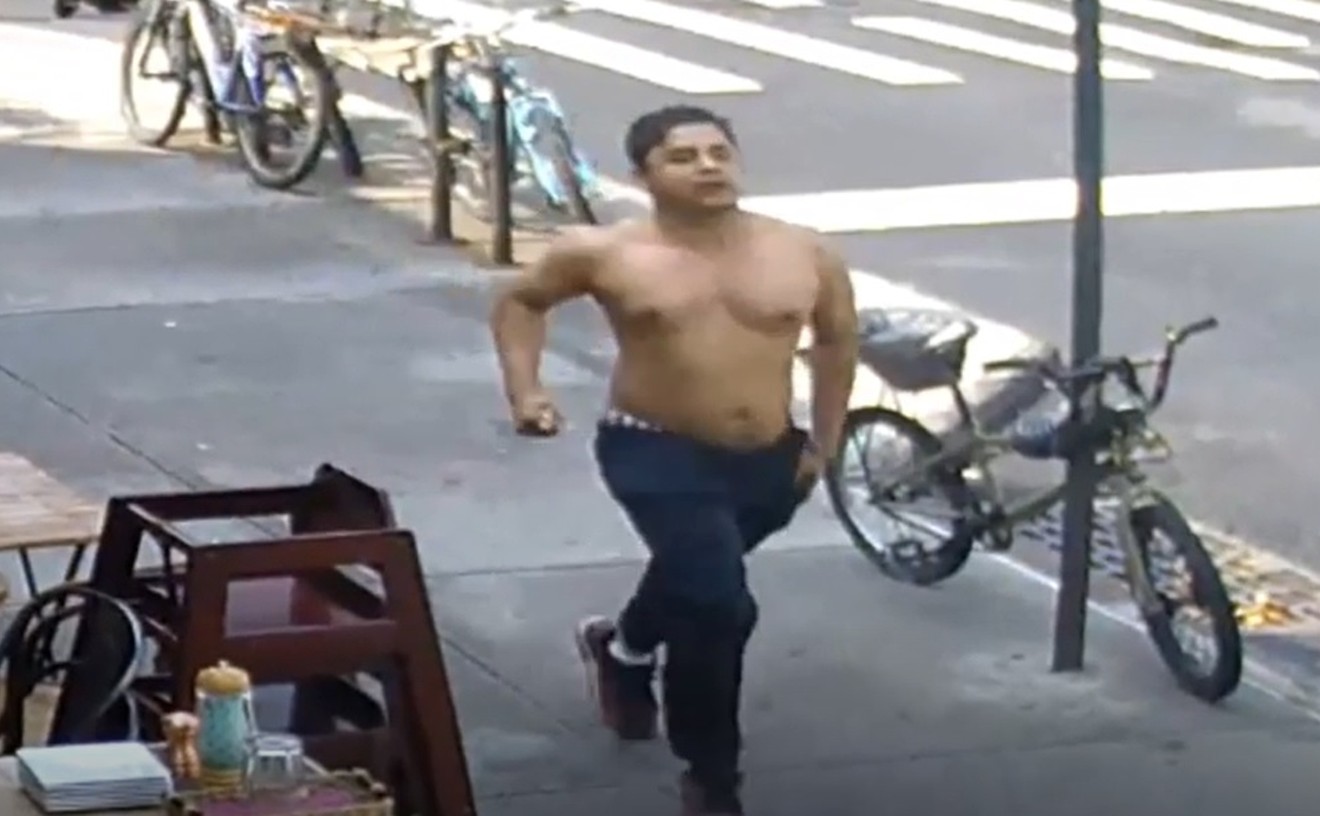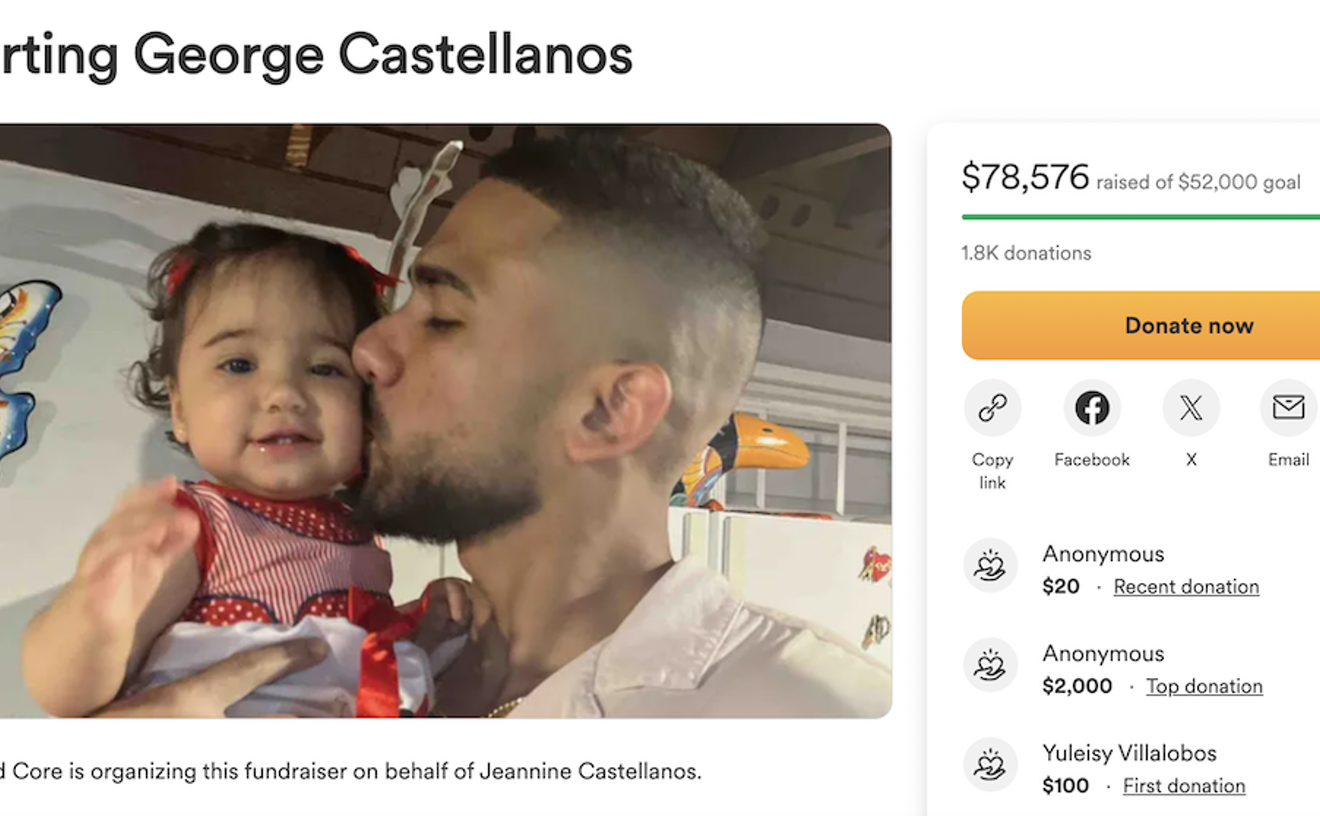That's a pretty big conspiracy for such a tiny town to hatch. Most observers would consider it a stretch -- unless they knew a little something about Hialeah Gardens or they happened to be sitting in the jury box listening to Martin's tale. In which case they might well end up believing him. And indeed that's exactly what happened last week in the federal courtroom of Judge Paul C. Huck.
After three days of trial testimony in which Martin claimed the City of Hialeah Gardens violated his constitutional right to "enter into contracts with nonwhites," jurors hearing the case agreed. They ordered the city to pay Martin $633,000 in compensation for his business costs.
Who could blame them? This is what the jury heard at trial: The police chief kept in his office a cassette tape of racist songs he would play for people "just for the humor." This same man became police chief at a time when his law-enforcement license was suspended. (He had been arrested in 1992 and charged with drunk driving and assaulting a police officer. He later agreed to a plea deal that allowed him to avoid a felony conviction.) Jurors also heard a mayoral aide recount how the city's former mayor routinely called her "darkie" and "lesbian," while slinging epithets like "nigger" and the derogatory Spanish slang molleto at others. That former mayor was not present at the trial. She's been convicted of vote fraud, insurance fraud, and solicitation to commit murder in a plot to kill her ex-husband. While her convictions are being appealed, she's lying low.
Perhaps more to the point, the mayoral aide and another former city hall employee both testified they witnessed the mayor order the police chief and the city's code enforcement director to close the roller rink so blacks would not "darken" her town. The code-enforcement director was not called to the stand, though. He was later fired and now he too is suing the city.
That image of Hialeah Gardens was evidently much more credible to the jury than the spin by the lawyers defending the city -- namely, that Martin was a failed businessman seeking to blame others for his misfortunes.
Hialeah Gardens is a tiny little burg of some 20,000 souls wedged in between Hialeah on the east and Okeechobee Road on the west. This is where Martin built and opened his Thunder Wheels skating rink in November 1994. Thunder Wheels was the first of three roller rinks Martin owned, the two others being in Kendall and on Flagler Street near Sweetwater. Martin maintained that he never had problems at those two establishments. But after initiating Soul Night in Hialeah Gardens in 1997, he claimed the city targeted him. He advertised the event on radio station Power 96 (WPOW-FM 96.5), and within a year it became a hit, drawing large crowds.
It also drew the wrath of Mayor Gilda Oliveros, known as the "miniskirt mayor" for her provocative dress. Medardo Martin's Miami lawyer, Michael Feiler, who tried the case with partner Martin Leach, amended the sobriquet to the "molleto mayor" in acknowledgment of the racist term she was allegedly fond of using.
"The mayor complained to the chief that there were too many blacks at that business," testified Rosa Levy, who was an assistant to Oliveros in the mid-Nineties. "She said she didn't want that because it would darken her city." Levy, whose mother is Afro-Cuban, recounted how Oliveros treated her and the one other black city employee: "She said we were her darkies." To hear Levy tell it, that was the affectionate side of Oliveros. For others with dark skin the mayor would spit out a string of racial slurs ranging from the Spanish slang "chardo" and "molleto" to the more prosaic "nigger."
"For her it was funny," Levy shrugged.
Attorney J. Frost Walker III, defending the city against Martin's lawsuit, contended that the fact Mayor Oliveros hired two black employees indicated she was not a racist. Walker called witnesses from city hall who claimed they never heard the mayor utter racist vitriol. One of them was Hialeah Gardens Police Chief Keith Joy.
But Joy's credibility was diminished when he was forced to admit he once owned racist music. On the witness stand, the hip-hop-detesting top-cop-with-an-arrest-record acknowledged he once owned a cassette tape known as a "Johnny Rebel" recording. According to Feiler these are underground country-music satires that liberally use racial epithets in songs like "My Wife Left Town with a Nigger." In a pretrial deposition the chief said he played the tape in his office for select people.
"Who was there?" Feiler asked.
"Not anyone African American," replied the chief. "[It] probably would have offended someone." The chief explained that the tape was just one of those things "that gets passed around for humor's sake." Later he added, "I didn't think it was funny."
By 1998 neighbors of the Thunder Wheels rink were complaining that the popularity of Soul Night, held on Fridays, was causing problems. Three residents of the Royal Palm condominiums next door testified that Soul Night patrons parked in spaces reserved for residents and that the crowds gathered outside became so large they blocked traffic and were loud and unruly. On November 7, 1998, residents called police to complain about the occupied parking spaces. Police summoned tow trucks. Thunder Wheels alerted its patrons. Police, upset neighbors, and angry patrons mingled outside. A gunshot was heard. Four different police agencies arrived on the scene. In the end no one was arrested and there was no conclusive evidence a gun had been fired.
Martin testified that he responded to the neighbors' concerns by hiring off-duty police not only for Thunder Wheels but for the condominium complex. But by then, he said, the city's efforts to shut him down were in full swing.
After the November incident, former mayoral aide Rosa Levy testified, she heard Mayor Oliveros order the city's chief code-enforcement officer, Orlando Diez, to find a way to close the rink. "She told [Diez] she wanted blacks out of her city. They could go to Carol City, Opa-locka, Liberty City, but not Hialeah Gardens," Levy said. "She kept sending [Diez] back and she keeps asking him when is he going to close them down?" Robert Godwin, special assistant to the mayor at the time, corroborated Levy's testimony.
Martin and his Friday-night manager Maete Sotolongo testified that Diez arrived nearly every Friday, walking through the crowd and out onto the roller-rink floor against the flow of skaters. But Diez never issued Thunder Wheels a citation. (Attorney Walker, representing the city, argued there was no proof Diez was there every Friday night, and the fact that no citations were issued proved the city was not harassing Martin.)
Oliveros also allegedly ordered the police chief to harass the business, though Chief Joy denied targeting Thunder Wheels. At one point, however, the chief prohibited his officers from working off-duty security at Thunder Wheels. Joy claimed the rink was not safe. But that assertion was undercut when Det. Julio Menendez testified that a paralegal in the mayor's office, Manuel Carrera, told him the cops would not be allowed to work at Thunder Wheels again "until we take care of the molleto problem." Last week on the witness stand Carrera admitted using the term but claimed he didn't know what it meant. When pressed by Feiler, Carrera offered that he thought it might mean mulattos.
Detective Menendez complained in a memo to Oliveros, who promptly suspended Carrera for a couple of days. The city's lawyer argued that this disciplinary action negated all the assertions the mayor was racist. Levy, however, countered that when the mayor delivered the punishment, she told Carrera she had to do it to cover her butt.
Thunder Wheels' owner and workers testified that throughout 1999 the police would position their patrol cars in the rink's parking lot, emergency lights flashing, and routinely detain patrons. "They stopped people, they cuffed them and uncuffed them. It was a show," Martin recounted. "Sometimes they'd spend 45 minutes on just two or three kids."
On December 5, 1999, Oliveros was arrested and later convicted on four felony charges, including soliciting hit men to kill her former husband. (Ex-aide Robert Godwin's testimony was instrumental in that criminal case.)
Fatima Morejon took over as interim mayor. Medardo Martin said his problems eased up a little at that time. But with the election of a new mayor, Yioset De La Cruz, a 29-year-old law-school student, the harassment increased again. Martin testified that code-enforcement chief Diez warned him in March 2001 that within weeks the city was going to shut down Thunder Wheels. "Mr. Orlando Diez calls me up and says he's going to serve me with a cease-and-desist order," Martin recalled. "He said, 'We're going to close your business. I want you to understand this is not personal. It's not even my idea. The mayor and the chief of police instructed me to shut you down. Those are my orders.'"
Rather than wait for that embarrassment, Martin voluntarily closed the rink on March 28, 2001. He later shut down his other rinks as well.
At the conclusion of the three-day trial, the jurors began their deliberations. About an hour later they were back in the courtroom with a unanimous decision: The city had indeed violated Martin's civil rights and the monetary damages he sought were justified and should be paid.
The speed with which jurors reached agreement spoke volumes about the perceived veracity of Hialeah Gardens officials, including Keith Joy, who remains police chief. As Feiler put it in his closing remarks: "White man speak with forked tongue."










